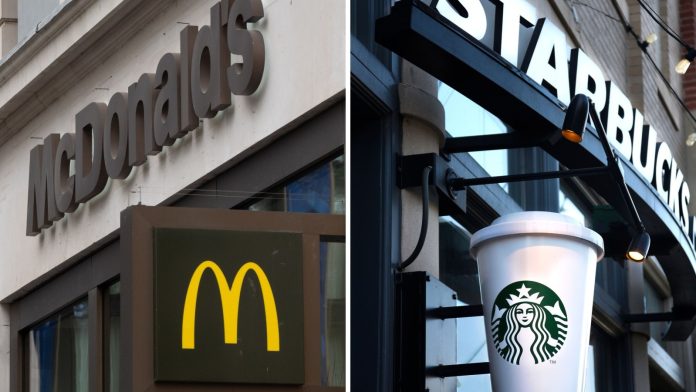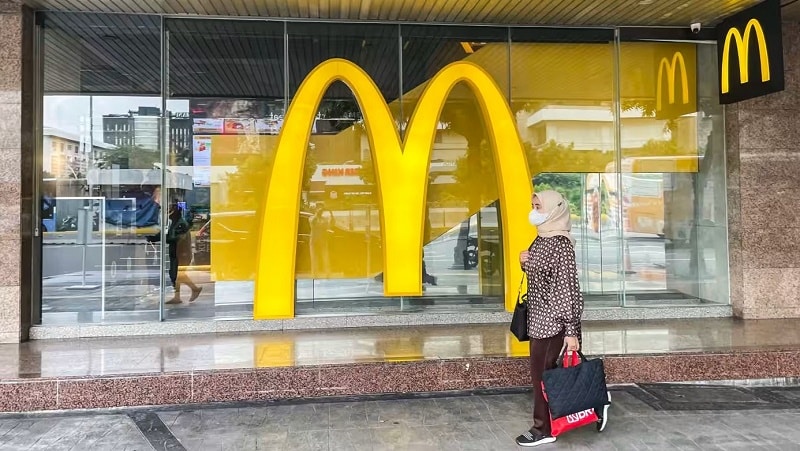Since the Israeli attack on Gaza, there has been a campaign to boycott Israeli products, due to which companies like Starbucks and McDonald have had to suffer the consequences.
Since the beginning of Israel’s invasion of the Gaza Strip in October last year, calls for boycotts of pro-Israel companies have increased. As Israeli violence escalated and the number of victims increased, the movement to boycott pro-Israel companies began to spread rapidly. This movement spread not only in the Middle East, but throughout the world. The increase in awareness of the Palestinian issue and the increase in people’s anger over the West’s double standards in hiding Israel’s crimes led to an unprecedented reception of the issue by people around the world.
The idea of boycott is based on refusing to buy the products and productions of a company, factory or a particular country with the aim of bringing about a change in the political or social practices of that company, factory or country through collective action. Boycott campaigns are particularly effective in countries and places where people are rich and have high purchasing power.
Boycotting a product of a company in such areas can have significant financial consequences for the companies concerned. The larger a company’s business, the more vulnerable it is to the impact of sanctions in different regions of the world.
The impact and power of a boycott is not limited to its impact on sales, but more importantly, it has an impact on a company’s reputation and brand.
The results of research by Braden King of Kellogg University showed that companies that saw a decline in popularity suffered greater losses than companies that saw a decline in sales. And the more media attention given to the boycott, the greater its impact.
King’s study shows that the impact of boycotts on companies’ reputation or public image goes far beyond the reduction in sales of those companies. And this is what the boycott movement wants to achieve. This is a matter that greatly concerns the managers of these companies.
Impact of boycott campaigns on companies like McDonald
A survey conducted in England in 1991 by the University of Kansas showed that corporate executives considered boycott campaigns to be more effective in putting pressure on companies than lobbying against them.
According to Cesar Chavez, who led the boycott movement against California grape growers in the 1960s, for a boycott to have a tangible impact it would take about 5 percent of consumers to be persuaded to join an organized boycott. And now if this movement reaches 10 percent of consumers we have to say that its effects will be devastating.
But King’s study emphasizes that a boycott is not always needed to achieve this effect on sales; sometimes the threat of damaging a company’s business reputation is sufficient for a boycott to be successful. .
For a ban to be sustainable and long-term and achieve its goals, suitable alternatives must be provided with quality and prices close to or lower than those of the banned goods. Campaigns to boycott imported goods often lead consumers to turn to domestic alternatives. In these cases, in addition to achieving the desired political and social goals, sanctions may also have a positive impact on the domestic and local economy.
From McDonald to Puma
The effects of popular boycotts on large companies and economic enterprises became apparent very quickly, and one of the clearest examples is the damage caused to the Starbucks chain, famous for its coffee shops. According to press sources, in the first week of last December, the boycott caused Starbucks to lose approximately eleven billion dollars, or about 10% of the company’s total market value. This issue led to a decline in the value of the company’s shares in the stock market, which is considered to be the biggest blow to it since 1992.
The Starbucks boycott came after the company sued the United Workers Union, the union that organizes workers at the Starbucks chain, for posting “solidarity with Palestine” on social media, deleting the post and later releasing a statement. It said the post had “damaged the company’s reputation”. This action by the company gave rise to public reaction and after which a campaign to boycott this company by #boycottstarbucks started on social media. This hashtag has received millions of hits on social media.
Read More: Israel newspaper: Iranians won before firing missiles and drones
The same happened with the McDonald restaurant chain. On October 19, McDonald in Israel announced that it had donated thousands of free meals to Israeli army soldiers and wounded. The issue was met with public anger and hatred and led to a widespread boycott of branches of this restaurant in the Middle East.
However, McDonald branches in the Middle East immediately distanced themselves from the McDonald branch in Israel and issued a statement saying that they had taken the decision independently and that it had nothing to do with the McDonald chain. Some branches even said they would donate part of their profits to help the people of Gaza. But no step could calm the public anger.
In fact, the public had refused to accept these excuses of the companies. This is why despite six months of war, McDonald branches in various countries of the world, especially Arab countries, are still being boycotted and very few people visit them.
The painful impact of the McDonald boycott was evident in a LinkedIn post from McDonald’s CEO Chris Kempinski. In this post he talked about the real and “disappointing” impact of the McDonald’s boycott in the Middle East and the “misinformation” given about this restaurant and the huge losses it has caused.
Zara Boycott
Zara, one of the leading brands in the fashion sector, was also one of the companies that were boycotted. The advertisements of this company had to face many protests and demonstrations across the world. Apart from the boycott, the UK branch of this company was sued for publishing controversial advertisements. The Zara company in its advertising showed models with stones, coffins and shrouds next to ruins in a Gaza-like background, thus making fun of the suffering of Palestinians.
However the company removed these ads and released a statement calling the incident a “misunderstanding”. But despite this the boycott campaign against it could not be stopped.
See More: Columbia University moves classes online after Gaza protests
This series of boycotts also included the Marks & Spencer company, which in a way made fun of the Palestinian flag and due to this there was a complaint against it, after which this company was boycotted.
Among other excluded companies can be mentioned the giant of the sportswear sector “Puma”. The company was forced by the boycott movement to terminate its sponsorship contract with the Israeli basketball team.
The movement made great use of social media to maintain and spread the boycott movement, and the effectiveness of the movement.
Today, there are several specialized websites to identify targeted items and their substitutes, as well as specialized phone apps that are used to scan the “barcodes” of goods in stores to confirm that they are non-exclusive. Are they part of the campaign or not?
The boycott movement is reminiscent of the large boycott campaign of American brands in the early 2000s following the Second Intifada and the US invasion of Iraq, which led to a significant decline in purchases of American goods by between 25 and 40 percent.
History of Boycott
The English word “boycott” originated in 1880, when Irish workers refused to cooperate with “Charles Cunningham Boycott”, an agent of the British government in land matters. From here the word boycott started being used for any kind of boycott. But organized boycott was first used in an article published by The Times in November of that year.
Perhaps one of the most famous successful boycott campaigns in history is the Tobacco Revolution of 1890 in Iran, which was instigated by Iranian clerics and caused people to stop buying and consuming tobacco, which ultimately led to an agreement with Britain. The agreement that was about to happen failed.
Boycotts have historically been a major and effective weapon of resistance for victims against their oppressors. Beyond the economic impact, boycotting pro-Israel companies is now a moral duty for the entire world, especially if that duty amounts to nothing more than skipping a hamburger or a cup of coffee or soda.















